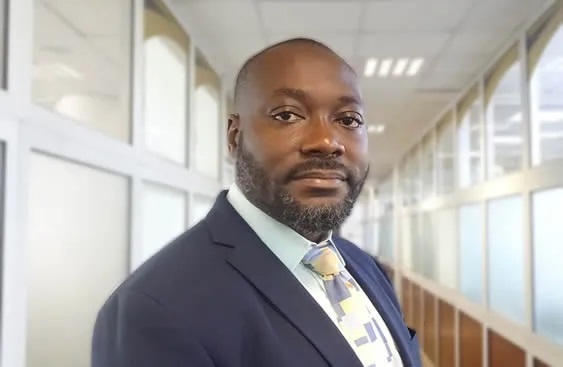Opoku Ahwenee Danquah
THE GHANA National Petroleum Corporation (GNPC) says its attention has been drawn to a publication by the Africa Centre for Energy Policy (ACEP) and the Imani Centre for Policy & Education titled “How GNPC’s Decisions Further Harm Ghana’s Battered Economy.”
According to GNPC, it was appalling “that ACEP and Imani perennially spew negative and unsubstantiated comments throughout the media, especially when they have not directly approached GNPC for its opinion. Nonetheless, GNPC is transparent and ready to provide any information to ACEP and Imani. Despite all GNPC’s contributions to the development and well-being of the nation, the corporation is yet to hear a single positive or uplifting statement from Imani and ACEP.”
Touching on GNPC’s financial performance in recent years, which it said the two civil society organisations reported as “Programmed Losses for 2022,” it said “the two organisations make basic errors, in their inability to distinguish between Deficit Financing and Profit/Loss. What GNPC presents to Parliament in its annual Work Programme is what the corporation intends to spend on its activities and the sources of funding for such projects, and the means of financing the forecasted deficit, if any. The figures quoted by ACEP and Imani to represent programmed losses are in fact budgeted deficits, for which the sources of finance are clearly stated in the Work Programme.”
It continued, “It is based on these mis-represented figures that ACEP and Imani draw their conclusion that GNPC’s operations raise significant debt concerns, and that cumulatively, the corporation’s actions could cost Ghana between US$5 billion and US$6 billion. These conclusions cannot be any further from the truth. Contrary to the assertions by ACEP and Imani that GNPC is a perennial loss-making organisation, our financial statements show that in the past 10 years GNPC has made a loss in only one year. Between 2017 and 2021, the only year GNPC made a loss was 2020.”
It further said the years 2020 and 2021 particularly, were difficult years for GNPC, and most other companies, due to the COVID-19 pandemic.
“Ghana does not manage its price risk unlike many other E&P companies. As such, we are particularly hit when extraneous circumstances like the COVID-19 pandemic affect both oil prices and production levels.
“ACEP and Imani’s inaccurate assertions on GNPC’s Liquified Natural Gas (LNG) business are without the benefit of full information and context, which could have been obtained if they had contacted GNPC. GNPC had negotiated with Shell for significantly reduced volumes of LNG off-take obligation. This then necessitated GNPC agreeing to pay for the unutilised capacity in the form of the Terminal Availability Fee. This amount was to be recouped when full contractual volumes were attained. As the terminal company has not declared availability, GNPC has not paid this fee. Currently, we are discussing with Shell to defer the re-gasified LNG offtake to a later date. As such, GNPC is no longer expected to make any payments in respect of the re-gasified LNG offtake,” it clarified.
It continued, “Regarding ACEP and Imani’s baseless claim of ‘Weak Reporting’, it is a fact that in addition to the Work Programme, GNPC provides audited accounts or management accounts (when audited accounts are not yet available), which includes actual revenue and expenditure analysis, to Parliament. GNPC also provides the Utilisation Report to Parliament as required by the PRMA. GNPC also submits reports of our annual financial statements, quarterly and annual performance reports etc. to other statutory bodies including the Ministries of Energy and Finance, Bank of Ghana, Ghana Revenue Authority, State Interest and Governance Authority and the Public Interest and Accountability Committee. As a matter of fact, GNPC provides about nine different reports related to oversight on its finances and operations.”
“Furthermore, ACEP and Imani should already know that GNPC has private counterparties and is involved in global commercial transactions outside the public domain. Thus, for due diligence procedures, GNPC also provides detailed international standard financial statements (scrutinised and approved by top global professional auditing companies such as Deloitte and Ernst & Young and consistent with international reporting standards) like any other global corporation would do. It is therefore erroneous and naive for anyone to suggest that the corporation’s reporting is weak and lacks transparency.
“Regarding ACEP and Imani’s fact-less accusation of ‘Fixation on Landed Property Acquisition’, it is instructive that there is no landed property which has been completed, and in usable condition for office operations, that is being left to rot. The intent to construct the Operational Head Office building in Takoradi and the Corporate Head Office project in Accra have been on the corporation’s property forecast for many years. “Budgeted projects are only undertaken when the requisite financing becomes available. While the completion of the civil works of the Takoradi Operational Head Office is 73%, there is also a Research and Technology Centre with civil works that are 84% complete. GNPC is committed to ensuring that its staff work in a conducive and enabling environment,” it added among others.
On the Voltaian Basin Project, the GNPC said it was proceeding systematically to increase the probability of success by conducting the necessary geological preparatory works such as seismic analysis, geochemistry studies, enhanced full Tensor Gravity Gradiometry (eFTG) before a decision is made to drill.


